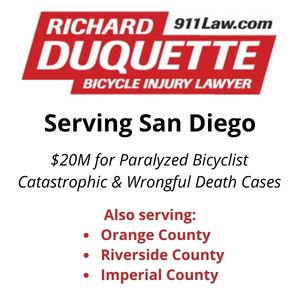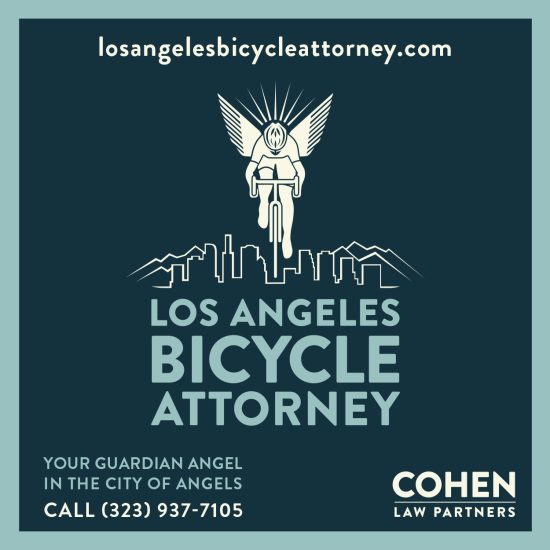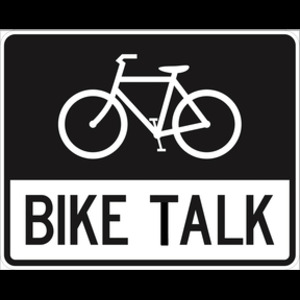As I noted recently, I was approached by representatives for both of the candidates in the May 19 runoff election for L.A.’s 5th Council District, each of whom offered to discuss bicycling and transportation issues here. As a result, I sent each candidate a list of five questions.
Here is the response from David Vahedi, current Board Member of the Westwood South of Santa Monica Homeowners Association and a co-founder of the Westside Neighborhood Council, as well as pro-bono attorney for Friends of Animals and other rescue organizations. He is also well-versed in bicycle law, having represented cyclists in a number of important cases, and is a life-long resident of the 5th District. I’ll repost this on the CD5/SD26 page above and keep it there through the election on May 19th.
David Vahedi
 A bicyclist was killed by an intoxicated hit-and-run driver in Echo Park recently, the latest in a string of hit-and run incidents. What can be done on the city level to reduce the rate of both drunk driving and hit-and-runs? And what can be done to improve safety for bicyclists and pedestrians?
A bicyclist was killed by an intoxicated hit-and-run driver in Echo Park recently, the latest in a string of hit-and run incidents. What can be done on the city level to reduce the rate of both drunk driving and hit-and-runs? And what can be done to improve safety for bicyclists and pedestrians?
Injuries and deaths caused by drunk drivers are not only senseless, but absolutely maddening. For the last 30 years, while the public has demanded tougher sanctions for drunk driving, the alcohol lobby has used campaign contributions to water down enforcement. A perfect example is the current proposal by an Assemblyman to require breathalyzer ignition locks installed on convicted drunk drivers vehicles. After more political contributions and pressure he has capitulated and the bill is now only for a pilot program in four counties.
More germane to Los Angeles is the fact that we are the most under policed city in the nation. For the last 15 years we have talked about a 10,000 member police force, but are only finally reaching the milestone later this year if the city council shows back bone and supports the Mayor’s goal.
While we should have 15,000 officers to be at parity with New York, Chicago, and other major cities per capita, we just lagging behind. Most frustrating to me is the fact that just a 2.2% shift in the general fund budget of LA would pay to hire an additional 1,000 officers. I cannot believe we cannot find and cut 2.2% of inefficiency to make this happen.
If you want to cut down on drunk driving and hit and runs you need the cops on the street to make it happen. More importantly, as I wrote during the primary, educated cops on the Cyclists’ Bill of Rights and enforcement of laws to protect cyclists will start us in the right direction.
Finally, I am very proud that my neighborhood council was able to raise $5,000.00 to purchase 5 police bicycles for the WLA Division. These bike officers have been seeing first hand and citing vehicle drivers for their knucklehead moves that put all cyclists at risk.
The Los Angeles City Council recently gave approval to the Cyclists’ Bill of Rights. Are you familiar with this document, and if so, do you support these rights as written? Are there any you disagree with, and why? And what would you consider the next steps to transform those rights from mere words into tangible action?
I was lucky enough to see the Cyclists’ Bill of Rights shortly after it was drafted by the BWC and other leaders in the community in the Spring of 2008 when several friends e-mailed it to me.
I fully support the bill. I would like to strengthen the bill to include that all future road construction projects should require as part of the Environmental Impact Report (EIR) an independent section on how the project would benefit and encourage safe bicycle riding so we stop squandering the opportunity to add to a safe riding experience and encourage people to get out of their cars.
Please see my primary election responses below for how we can as city leaders stop talking about protecting cyclists and actually start doing it.
There is often a high level of tension between cyclists and drivers in Los Angeles as they compete for limited road space, as illustrated by last year’s incident in Mandeville Canyon. What can the city do to help reduce that tension, and encourage both sides to safely and courteously share the road?
While we all have witnessed some bonehead moves by cyclists, the majority of the tension in Los Angeles lies with inattentive drivers who are wedded to an idea that they own the road and that driving a car is a right.
As mentioned earlier, I have been promoting getting more police officers out of their cars and onto bikes. I will continue this on the city council. Bike officers are a proven method of reducing crime and promoting community policing (it is easier to stop and interact with citizens on a bike, than in a car.)
More importantly, these officers are more likely to cite for dangerous driving that put cyclists at risk.
Also as mentioned earlier, we have failed to incorporate the biking community in dozens of road projects that for very little additional costs could have added segregated bike lanes.
What role, if any, do you see bicycles playing in city transportation policy and improving traffic flow within the city?
As mentioned earlier, all road projects, whether requiring an EIR or not, must include a real dialogue on how the project incorporates and encourages safe cycling.
Are there any other issues you want to address, or any additional comments you’d like to make to the bicycling community?
I would like to share my comments written during the primary which I have included below. As always, Please do not hesitate to contact me at home (310) 557-9677 to talk about any issue. I look forward to working with your group and other groups to make Los Angeles a world class city for cyclists.






These are such important questions, especially for a large city like LA! Bikers are not pedestrians and they are not cars. Therefore they need to have their rules spelled out, not only for themselves, but for the cars and other motorized vehicles around them. More education on the issue will solve many of the problems that we see cropping up, and this mayoral election is a great time to bring up the issue to the public and to public officials.